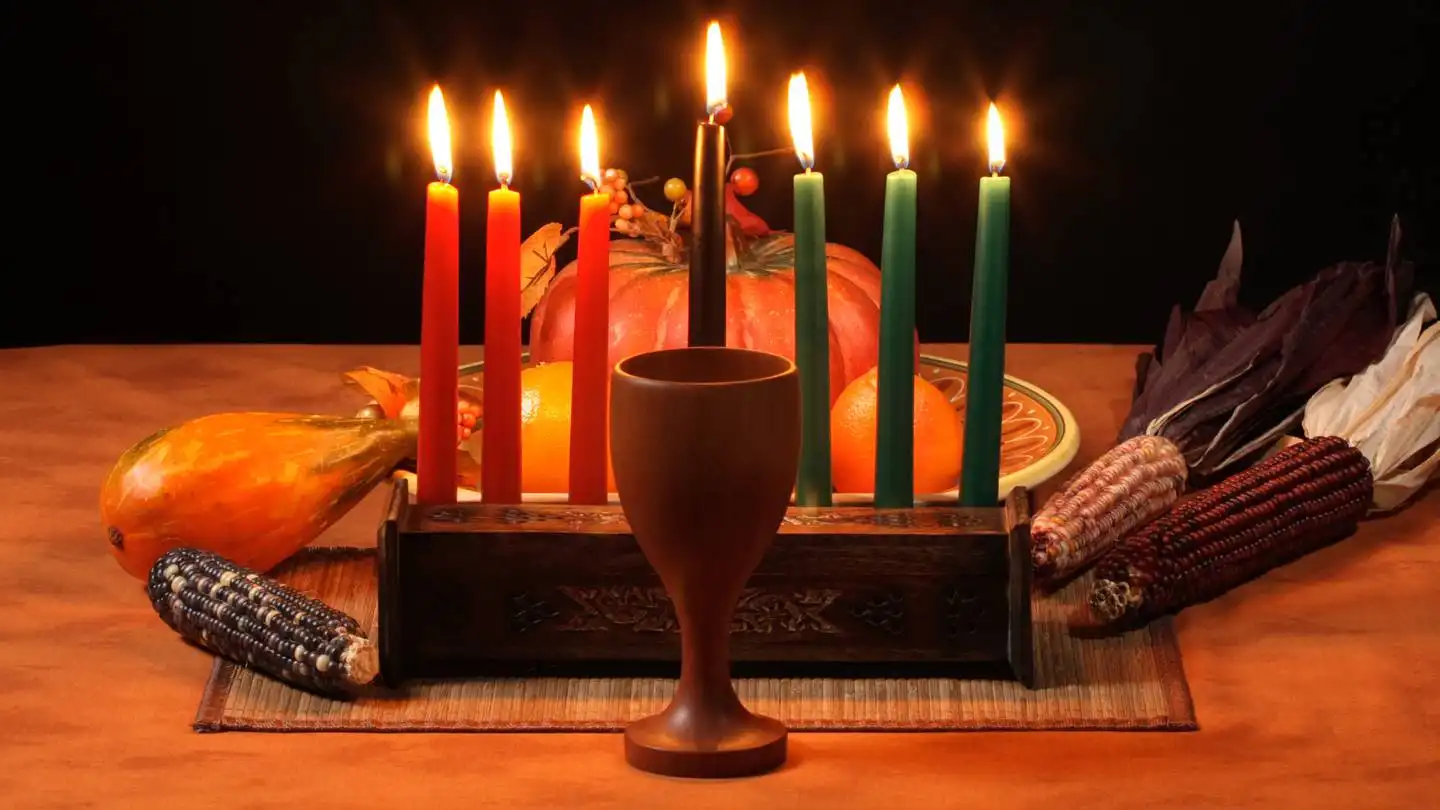Kwanzaa: 7 Important Facts You Should Know
Kwanzaa was created by Maulana Karenga in 1966. It's a cultural, non-religious holiday with seven principles, and a seven-day celebration.
Kwanzaa, a holiday that began just over 50 years ago, has grown in popularity and has been commemorated with postage stamp designs and mentioned by several presidents as part of their holiday greetings. Created in 1966 by Maulana Karenga, a black nationalist and college professor, Kwanzaa was first celebrated in the aftermath of the Watts riots in Los Angeles as an effort to unite and empower the African-American community.
The name "Kwanzaa" comes from the Swahili phrase "matunda ya kwanza," which means "first fruits." Swahili was chosen as the unifying language, and an extra "a" was added to the end of the original word because seven children each wanted to represent a letter at the first Kwanzaa celebration.
Despite being celebrated from Dec. 26 to Jan. 1, Kwanzaa is not an alternative to Christmas. It's a cultural celebration with a spiritual quality, but it's not a religious holiday. People of any race or ethnic background can participate in the holiday's events and customs.
Each of the seven days of Kwanzaa is dedicated to a principle, giving each day a specific meaning and purpose to focus on. The seven principles are unity, self-determination, collective work and responsibility, cooperative economics, purpose, creativity, and faith.
The colors of Kwanzaa - black, red, and green - represent unity for people of African descent worldwide. Black represents the people, red represents the noble blood that unites them, and green represents the rich land of Africa.
A seven-branched candelabra called a kinara is used to help discuss and celebrate the principles, with a new candle being lit each night. The order of the candles indicates that the people come first, followed by the struggle and then hope.
Food is an important part of Kwanzaa, with many people celebrating with their favorite African-American dishes, as well as traditional African, Caribbean, and other appropriate recipes throughout the week. The holiday culminates with a feast (known as Karamu) on Dec. 31, with dishes meant to symbolize the past as well as the current growth of African culture.












Comments on Kwanzaa: 7 Important Facts You Should Know